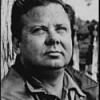Willie Morris

Willie Morris
William Weaks "Willie" Morris, was an American writer and editor born in Jackson, Mississippi, though his family later moved to Yazoo City, Mississippi, which he immortalized in his works of prose. Morris' trademark was his lyrical prose style and reflections on the American South, particularly the Mississippi Delta. In 1967 he became the youngest editor of Harper's Magazine. He wrote several works of fiction and non-fiction, including his seminal book North Toward Home, as well as My Dog Skip...
NationalityAmerican
ProfessionWriter
Date of Birth29 November 1934
CountryUnited States of America
We want to help further the understanding of the Italian culture and language to those who are interested. We're hoping that these events will spark students' interests in our club and prompt more people to join, along with providing an educational and entertaining experience.
It was Bill, ... who pushed Willie to go to New York.
His claim to his home is deep, but there are too many ghosts. He must absorb without being absorbed.
On winter afternoons, from my office, there were sunsets across Manhattan when the smog itself shimmered and glowed. . . . Despite its difficulties, which become more obvious all the time, one was constantly put to the test by this city, which finally came down to its people; no other place in America had quite such people and they would not allow you to go stale; in the end they were its triumph and its reward.
He must always be a stranger to the place he loves, and its people.
And it was to this city, whenever I went home, that I always knew I must return, for it was mistress of one's wildest hopes, protector of one's deepest privacies. It was half insane with its noise, violence, and decay, but it gave one the tender security of fulfillment.
When a writer knows home in his heart, his heart must remain subtly apart from it.
When I started driving our old four-door green DeSoto, I always took Skip on my trips around town. I would get Skip to prop himself against the steering wheel, his black head peering out of the windshield, while I crouched out of sight under the dashboard. Slowing the car to ten or fifteen, I would guide the steering wheel with my right hand while Skip, with his paws, kept it steady. As we drove by the Blue Front Café, I could hear one of the men shout: "Look at that ol' dog drivin' a car!"
I can think of no one more qualified to write about the modern South than Curtis Wilkie
The Halifax area has long played a major role in Canada's military operations, being the port of departure for convoys, naval task forces and army units over the past 100 years or so.
It took me years to understand that words are often as important as experience, because words make experience last.
As with many Southern Writers, I believe that the special quality of the land itself indelibly shapes the people who dwell upon it.
My mother's people, the people who captured my imagination when I was growing up, were of the Deep South - emotional, changeable, touched with charisma and given to histrionic flourishes. They were courageous under tension and unexpectedly tough beneath their wild eccentricities, for they had and unusually close working agreement with God. They also had an unusually high quota of bullshit.
The dog of your boyhood teaches you a great deal about friendship, and love, and death: Old Skip was my brother. They had buried him under our elm tree, they said-yet this wasn't totally true. For he really lay buried in my heart.